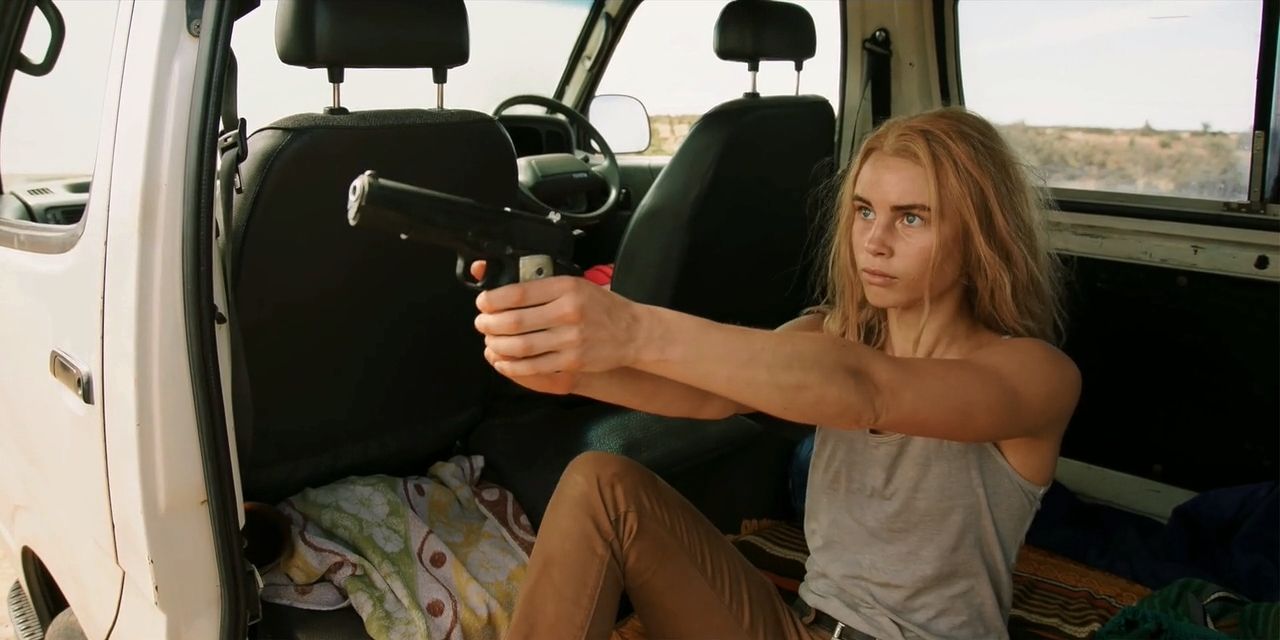 ★★★★
★★★★
“The dark side of Crocodile Dundee.”
 Here is a confession: I have never seen the acclaimed two Wolf Creek movies (2005 and 2013 – a third movie is planned). The reason was simple: I just didn’t care for ultra-cruel slashers from Australia. After watching this TV-spin off I might revise my opinion and catch up with them; if they are as good as this TV series I definitely want to see them!
Here is a confession: I have never seen the acclaimed two Wolf Creek movies (2005 and 2013 – a third movie is planned). The reason was simple: I just didn’t care for ultra-cruel slashers from Australia. After watching this TV-spin off I might revise my opinion and catch up with them; if they are as good as this TV series I definitely want to see them!
So, what’s the story? The American Thorogood family is on holiday in Australia. Unfortunately for them, their young son is swimming in a crocodile-infested lake (who goes swimming in Australia? Don’t we all know their waters are full of deadly animals?). Fortunately for them, Australian animal hunter Mick Taylor (John Jarratt) arrives, right on time, to shoot the crocodile before it can attack the boy. Unfortunately for them, Mick is a psychopathic sadistic serial killer who kills them all before the evening is over, including daughter Eve (Lucy Fry). Or so he thinks, because Eve survives. As she is slowly nursed back to health, and answers the questions of the police, she comes to the realization that the authorities won’t be able or willing to catch the killer.
She decides to hunt Mick herself and take revenge for the death of her family. Eve is originally innocent, and carries feelings of guilt, since her family was only in Australia because she was recovering from drug addiction – she used to be an athlete. She has to learn to get along in a hard, merciless country by herself, and avoid or defeat the criminals, thieves and would-be-rapists there who pose a threat during her journey. Eve is pursued by the police, as she herself has broken the law, and also by a well-meaning policeman who wants to help her. Not to mention Mick who – happily slashing his way through unpopulated areas – has realized that someone is pursuing him and starts to play a cat-and-mouse-game with Eve…
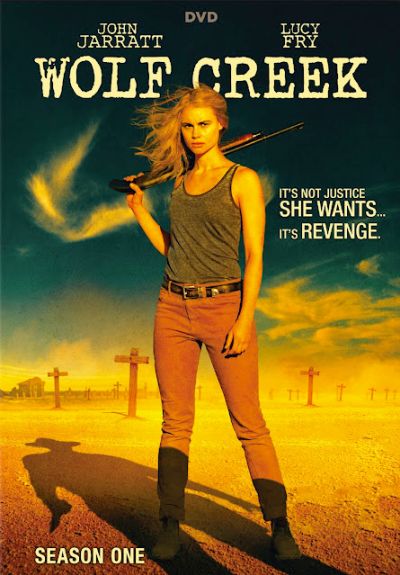 I have to say that this series really surprised me. I had bought it based solely due to the cool cover photo and didn’t expect much more than a probably over-gruesome third-rate slasher, I mean, is Australia really famous for great serial killer psycho thrillers? Though there is the very good Stacy Keach and Jamie Lee Curtis thriller from 1981, Road Games. As a matter of fact, this short (six episodes) series blew me away with its astounding quality. When you read the above, you might be forgiven for getting the impression the whole thing will come across as a bit cheap in its storytelling, or the motivation of its characters – a bit schlocky in general.
I have to say that this series really surprised me. I had bought it based solely due to the cool cover photo and didn’t expect much more than a probably over-gruesome third-rate slasher, I mean, is Australia really famous for great serial killer psycho thrillers? Though there is the very good Stacy Keach and Jamie Lee Curtis thriller from 1981, Road Games. As a matter of fact, this short (six episodes) series blew me away with its astounding quality. When you read the above, you might be forgiven for getting the impression the whole thing will come across as a bit cheap in its storytelling, or the motivation of its characters – a bit schlocky in general.
But… it isn’t.
The best way I can describe the show is with the word “unpretentious”. That might sound strange. Yes, it is, at its core, a revenge story. And, yes, people are tortured and killed in cruel ways: when someone has an infected hand, you see him cut it off with a saw. But I never got the feeling these scenes were gratuitous or to make the blood-thirsty gorehounds happy. Quite the opposite: things like this are carefully integrated into the narrative of the story, and have a meaning that goes above mere shock value. I would almost call this story, about a serial killer tracking his prey across desert hunting grounds, decent and yes, even tasteful – considering how different this narrative could have been presented.
Most surprising for me was, though big game hunter Mick is always looming in the background, it’s mainly Eve’s story. In the beginning I wasn’t too impressed with her. She seemed like a bland, pale character, just a victim who survived a catastrophe. I was half expecting her to become the usual superwoman, who knows it all and can do everything better than every male – thanks, mister! But the filmmakers were smarter than your average Hollywood screenwriter and producer, who nowadays seem only to be able to create one-dimensional, flawless, conveyor-belt manufactured heroines. Eve does not know it all, she can not do it all alone, and makes mistakes – some really terrible. She fails and learns from it. She falls and has to stand up again. It alone makes the character better than almost 95% of today’s female protagonists in American movies or shows. Kudos for that!
Also, there is a second season, which I have not seen yet (it isn’t available in my home country). Given it has everyone’s favourite killer from Down Under again, but not Eve, I began seriously to worry about her fate. You really start to sympathize with her. Running away from the police in the beginning might be anything but rational, but as the series develops, so does she. You start to understand who she is, and she gets a backstory: she is not a random female character out for revenge anymore. She has these understandable feelings and more than once I thought: “Gosh, this could be going different, girl. You should be working together with the police. There could be common ground if you were not so stuck on the idea that you’ve got to do this all on your own!”
Then there are moments when she realizes herself she is way over her head, fighting insurmountable odds. She gets better at it, slowly, and the point in a way is about self-discovery. It becomes an odyssey for oneself, where the protagonist has to question when reaching the nadir of life: What am I standing for? Why do I do what I do? Is it really worth all that? Could I choose a different life? There are moments that indicate that Eve might give up her hunt. The series repeatedly contrasts her persona with other characters who have lost themselves, who may have been destroyed by this vast open country where you seem to be far from civilization or God.
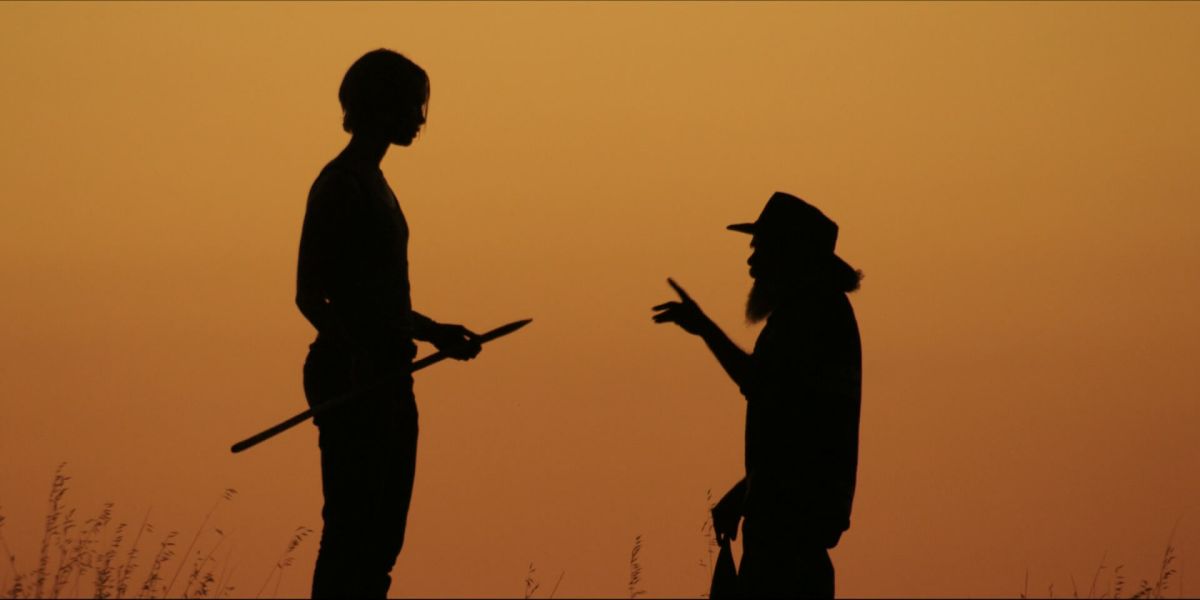 Eve is repeatedly confronted by these criminals, or wanna-be-rapists who see a normal dressed woman as an offer, and experiences family tragedies that actually form the core of the narrative. She is not without help though. As well as the policeman on her trail who reluctantly starts to cover-up for her, there is a criminal whom she meets in the desert, an old Aborigine who fits into the classic mentor role, a colleague in a bar and she even gets a canine companion. Though the question always lingers while watching the show: Will she get her revenge? What will she do when meeting the man who killed her family? Does she even have a chance against an experienced, sadistic killer like Mick?
Eve is repeatedly confronted by these criminals, or wanna-be-rapists who see a normal dressed woman as an offer, and experiences family tragedies that actually form the core of the narrative. She is not without help though. As well as the policeman on her trail who reluctantly starts to cover-up for her, there is a criminal whom she meets in the desert, an old Aborigine who fits into the classic mentor role, a colleague in a bar and she even gets a canine companion. Though the question always lingers while watching the show: Will she get her revenge? What will she do when meeting the man who killed her family? Does she even have a chance against an experienced, sadistic killer like Mick?
So, yes, I applaud Lucy Fry’s performance in the role. Thanks to an excellent script, it made me believe she – albeit slowly- becomes a potential threat to the seasoned serial killer. But also John Jarrat, playing this role for a third time, is incredibly good. Mick Taylor is a nightmare of a character, superficially charming, but essentially a disgusting sleazebag. Though it’s great even he has been given a backstory. While he kills the way other people drink their morning coffee, we get to know enough about him to deduce how he became that way. An episode tells us in flashback about a key event in his childhood that may have been the catalyst for his murderous doings. If this is believable is up to the viewer, I think. I like it they gave him more than the “Well, he’s insane” explanation so many movies and shows tend to give their killers nowadays.
Having Eve faced with what can only be labelled as a devil in human form, touches an even more ambitious question. It’s a theme that classic The Hitcher (C. Thomas Howell and Rutger Hauer) dared to ask. How much of your own humanity do you have to leave behind, to be able to fight the devil? I think it refers to the age-old Nietzsche-ism “If you gaze long enough into an abyss, the abyss will gaze back into you.” I’m not saying how this “psycho thriller” ends, but I really, really recommend this show. Every episode had me glued to my TV, and I got much more enjoyment out of this short Australian TV show than I imagined. Also, I think it’s far superior to your average American product playing in the same genre pool.
I really feel I should get my hands on season 2, even though the main actress won’t be back. Also, I look forward to the third movie – and I wish you happy hunting! 😉
Creator: Greg McLean
Star: Lucy Fry, John Jarratt, Dustin Clare, Jessica Tovey
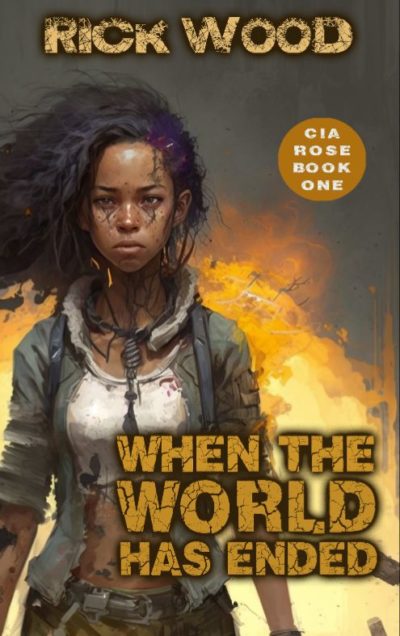 “It just seemed as if Hell opened up one day and that was that. Instant carnage, liberated monsters, death for all. They rose from somewhere beneath the ground, attacking for no clear reason and killing until God knows when.” That’s how this starts, so there’s no hanging around. Cia Rose is one of the few survivors, for whom every day survival is a perilous endeavour. She’s seventeen, and the daughter of a scientist. When the monsterpocalypse took place, the rich, influential and powerful – who, it appears, knew this was coming – headed for their shelters. Her father was allowed in, to research the invaders. Cia was not.
“It just seemed as if Hell opened up one day and that was that. Instant carnage, liberated monsters, death for all. They rose from somewhere beneath the ground, attacking for no clear reason and killing until God knows when.” That’s how this starts, so there’s no hanging around. Cia Rose is one of the few survivors, for whom every day survival is a perilous endeavour. She’s seventeen, and the daughter of a scientist. When the monsterpocalypse took place, the rich, influential and powerful – who, it appears, knew this was coming – headed for their shelters. Her father was allowed in, to research the invaders. Cia was not.




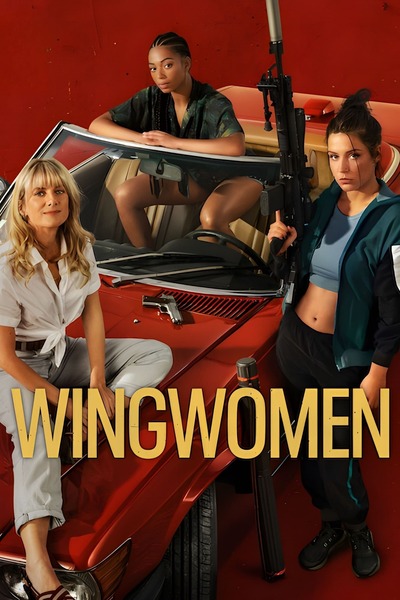 Netflix describes this as “Charlie’s Angels meets Lupin, with a dash of Killing Eve.” Um. About that… While I haven’t seen Lupin, I can confidently state any similarity to the others is tangential at best. For example, the only thing this really has in connection with Charlie’s Angels, is that there’s three of them. But here, it’s more like 2.25, since the third member is largely useless. It’s almost entirely the story of Carole (Laurent) and Alex (Exarchopoulos), two thieves who work for the enigmatic Marraine (Adjani). But Carole has discovered she’s pregnant and wants out of the business. Marraine is not happy, but agrees, providing Carole does that hoariest of film clichés: One Last Job.
Netflix describes this as “Charlie’s Angels meets Lupin, with a dash of Killing Eve.” Um. About that… While I haven’t seen Lupin, I can confidently state any similarity to the others is tangential at best. For example, the only thing this really has in connection with Charlie’s Angels, is that there’s three of them. But here, it’s more like 2.25, since the third member is largely useless. It’s almost entirely the story of Carole (Laurent) and Alex (Exarchopoulos), two thieves who work for the enigmatic Marraine (Adjani). But Carole has discovered she’s pregnant and wants out of the business. Marraine is not happy, but agrees, providing Carole does that hoariest of film clichés: One Last Job. ★★★★
★★★★ Here is a confession: I have never seen the acclaimed two Wolf Creek movies (2005 and 2013 – a third movie is planned). The reason was simple: I just didn’t care for ultra-cruel slashers from Australia. After watching this TV-spin off I might revise my opinion and catch up with them; if they are as good as this TV series I definitely want to see them!
Here is a confession: I have never seen the acclaimed two Wolf Creek movies (2005 and 2013 – a third movie is planned). The reason was simple: I just didn’t care for ultra-cruel slashers from Australia. After watching this TV-spin off I might revise my opinion and catch up with them; if they are as good as this TV series I definitely want to see them! I have to say that this series really surprised me. I had bought it based solely due to the cool cover photo and didn’t expect much more than a probably over-gruesome third-rate slasher, I mean, is Australia really famous for great serial killer psycho thrillers? Though there is the very good Stacy Keach and Jamie Lee Curtis thriller from 1981, Road Games. As a matter of fact, this short (six episodes) series blew me away with its astounding quality. When you read the above, you might be forgiven for getting the impression the whole thing will come across as a bit cheap in its storytelling, or the motivation of its characters – a bit schlocky in general.
I have to say that this series really surprised me. I had bought it based solely due to the cool cover photo and didn’t expect much more than a probably over-gruesome third-rate slasher, I mean, is Australia really famous for great serial killer psycho thrillers? Though there is the very good Stacy Keach and Jamie Lee Curtis thriller from 1981, Road Games. As a matter of fact, this short (six episodes) series blew me away with its astounding quality. When you read the above, you might be forgiven for getting the impression the whole thing will come across as a bit cheap in its storytelling, or the motivation of its characters – a bit schlocky in general. Eve is repeatedly confronted by these criminals, or wanna-be-rapists who see a normal dressed woman as an offer, and experiences family tragedies that actually form the core of the narrative. She is not without help though. As well as the policeman on her trail who reluctantly starts to cover-up for her, there is a criminal whom she meets in the desert, an old Aborigine who fits into the classic mentor role, a colleague in a bar and she even gets a canine companion. Though the question always lingers while watching the show: Will she get her revenge? What will she do when meeting the man who killed her family? Does she even have a chance against an experienced, sadistic killer like Mick?
Eve is repeatedly confronted by these criminals, or wanna-be-rapists who see a normal dressed woman as an offer, and experiences family tragedies that actually form the core of the narrative. She is not without help though. As well as the policeman on her trail who reluctantly starts to cover-up for her, there is a criminal whom she meets in the desert, an old Aborigine who fits into the classic mentor role, a colleague in a bar and she even gets a canine companion. Though the question always lingers while watching the show: Will she get her revenge? What will she do when meeting the man who killed her family? Does she even have a chance against an experienced, sadistic killer like Mick? Okay, I will admit that this strained credibility on a number of occasions, to the point that buttons were popping off its shirt. But I don’t think the makers were exactly going for gritty realism, and the bottom line is: I enjoyed this a lot. Certainly, more so than
Okay, I will admit that this strained credibility on a number of occasions, to the point that buttons were popping off its shirt. But I don’t think the makers were exactly going for gritty realism, and the bottom line is: I enjoyed this a lot. Certainly, more so than 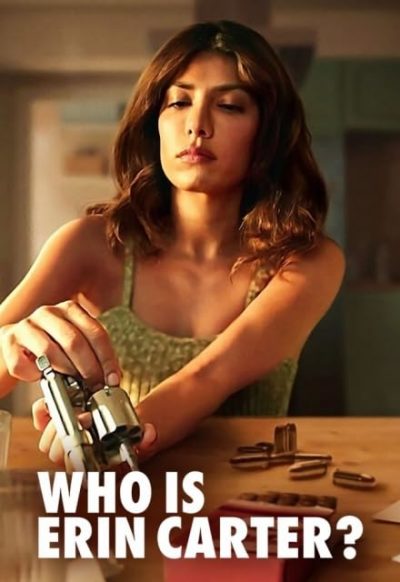 Turns out, Erin has a past, and the publicity resulting from her impromptu heroism brings it to visit. She finds herself embroiled in murder, organized crime and police corruption, as well as more normal familial drama, such as neighbourhood jealousy and whiny pre-teen nonsense. One of the seven 45-minute episodes is entirely in flashback (unexpected Jamie Bamber!), explaining the reason she changed her identity and moved to Spain, as well as why those from her history are keen to catch up with her. Even the spectacularly unobservant Jordi begins to realize that his other half is not quite as claimed. Her original explanation of a relapse into alcoholism doesn’t exactly explain all the sudden absences, injuries and unusual behaviour Erin is now exhibiting, as she tries to manage the escalating situation.
Turns out, Erin has a past, and the publicity resulting from her impromptu heroism brings it to visit. She finds herself embroiled in murder, organized crime and police corruption, as well as more normal familial drama, such as neighbourhood jealousy and whiny pre-teen nonsense. One of the seven 45-minute episodes is entirely in flashback (unexpected Jamie Bamber!), explaining the reason she changed her identity and moved to Spain, as well as why those from her history are keen to catch up with her. Even the spectacularly unobservant Jordi begins to realize that his other half is not quite as claimed. Her original explanation of a relapse into alcoholism doesn’t exactly explain all the sudden absences, injuries and unusual behaviour Erin is now exhibiting, as she tries to manage the escalating situation.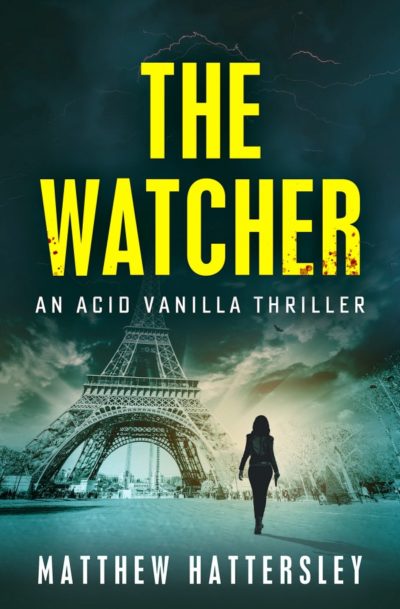 Somebody
Somebody 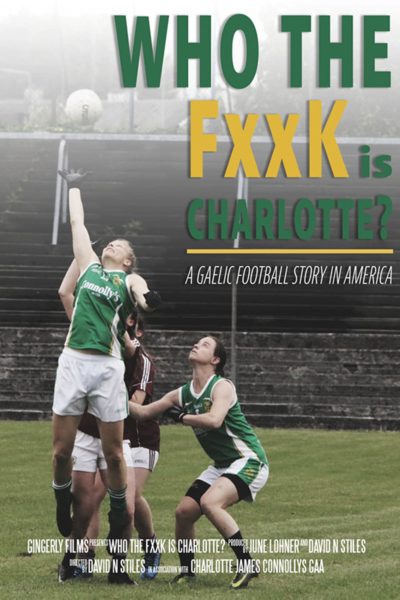 The Charlotte club was formed in 2000, and based on what we see here, is as much a social organization as a sports club. There does appear to be quite a lot of consumption of adult beverages. But there’s no doubt, they take the sport seriously, and recruit from all round the area, both Irish and American players. On North America, teams can bring in experienced players from Ireland, known as “sanctions”, to help grow the sport. But some clubs do that to excess: Charlotte refuse to go that route, putting their team at a potential disadvantage compared to Boston, or their arch-rivals from San Francisco, the Fog City Harps. The film follows Charlotte as they develop their team, and take part in the 2016 and 2017 senior women’s tournament, for the best sides in North America.
The Charlotte club was formed in 2000, and based on what we see here, is as much a social organization as a sports club. There does appear to be quite a lot of consumption of adult beverages. But there’s no doubt, they take the sport seriously, and recruit from all round the area, both Irish and American players. On North America, teams can bring in experienced players from Ireland, known as “sanctions”, to help grow the sport. But some clubs do that to excess: Charlotte refuse to go that route, putting their team at a potential disadvantage compared to Boston, or their arch-rivals from San Francisco, the Fog City Harps. The film follows Charlotte as they develop their team, and take part in the 2016 and 2017 senior women’s tournament, for the best sides in North America. 
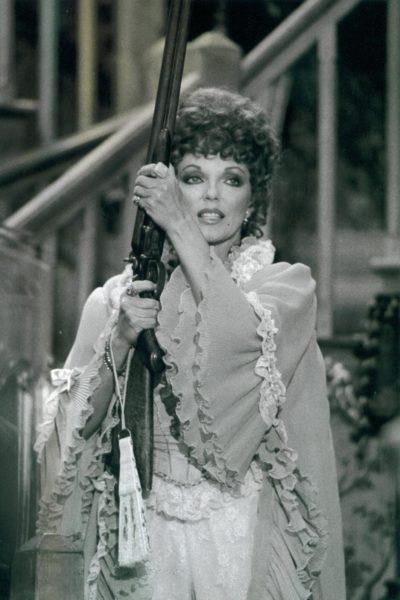 This sprightly TV movie from 1982 boasts a rather decent cast and, at least in the first half, manages to go in unexpected and interesting direction. It does end up descending into rather familiar territory thereafter, and the finale doesn’t manage to be as rousing as it should be. Yet it managed to keep my interest, and as this genre goes, that probably makes it better than average. It takes place in the last stages of the American Civil War, when the Southern women of Sweetwater have been left bereft of men, after the Confederate Army has recruited them all to their cause. Newly arrived in town is doctor Maggie McCulloch (Barnes), who has arrived to help her ailing aunt, Annie (Collins). She is shocked to discover Annie is less the mine owner touted in her letters, and more the owner of the town brothel.
This sprightly TV movie from 1982 boasts a rather decent cast and, at least in the first half, manages to go in unexpected and interesting direction. It does end up descending into rather familiar territory thereafter, and the finale doesn’t manage to be as rousing as it should be. Yet it managed to keep my interest, and as this genre goes, that probably makes it better than average. It takes place in the last stages of the American Civil War, when the Southern women of Sweetwater have been left bereft of men, after the Confederate Army has recruited them all to their cause. Newly arrived in town is doctor Maggie McCulloch (Barnes), who has arrived to help her ailing aunt, Annie (Collins). She is shocked to discover Annie is less the mine owner touted in her letters, and more the owner of the town brothel.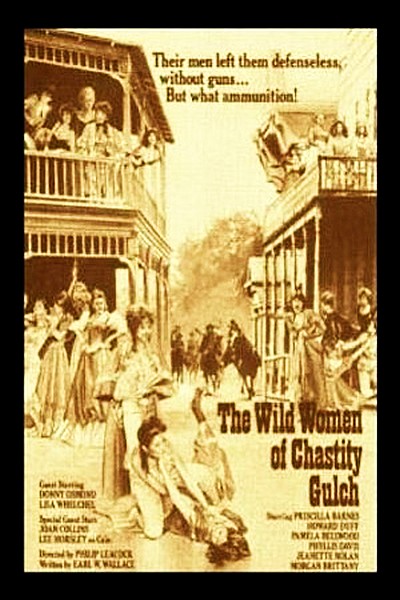 That aside, the plot unfolds largely as you’d expect. There’s the initial tension between whores and housewives, and the women struggle to come to terms with the everyday business of running the town. For example, there’s a fire drill, which ends up with half the ladies thrashing around in shallow water, and some other slapstick involving whitewash, that is somewhere between lightly amusing and embarrassing. However, Barnes – at the time a sitcom star in Three’s Company – does a very good job of keeping the film grounded, and the supporting cast help admirably in that aspect. Collins is particularly good, projecting an attitude which clearly proclaims she will take no shit from anyone.
That aside, the plot unfolds largely as you’d expect. There’s the initial tension between whores and housewives, and the women struggle to come to terms with the everyday business of running the town. For example, there’s a fire drill, which ends up with half the ladies thrashing around in shallow water, and some other slapstick involving whitewash, that is somewhere between lightly amusing and embarrassing. However, Barnes – at the time a sitcom star in Three’s Company – does a very good job of keeping the film grounded, and the supporting cast help admirably in that aspect. Collins is particularly good, projecting an attitude which clearly proclaims she will take no shit from anyone.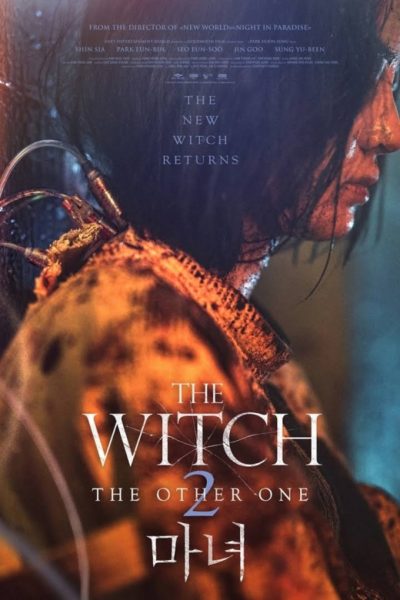 This showed up as a bit of a surprise. Obviously, even the title suggested that the makers were looking for a sequel to
This showed up as a bit of a surprise. Obviously, even the title suggested that the makers were looking for a sequel to 